

Published on 25 June 2024
EFCNI and the Doris Mollel Foundation both contribute to efforts by the World Health Organization (WHO) to develop a guideline on discharge management and follow-up care of small or sick newborn as well as an implementation toolkit. Joining an international expert group, led by EFCNI Chairwoman Silke Mader and Doris Mollel from the Doris Mollel Foundation, we advocate for considering and incorporating crucial patient perspectives.

Published on 07 June 2024
Kangaroo Mother Care (KMC) is a care practice that benefits not only newborns and their families but also healthcare providers and hospitals. KMC centres care around the needs of the infant, empowers families, mitigates the workload for medical professionals, and saves resources in often overburdened healthcare systems. It includes continuous and prolonged skin-to-skin contact, exclusive breastfeeding, and timely discharge from the Neonatal Intensive Care Unit.
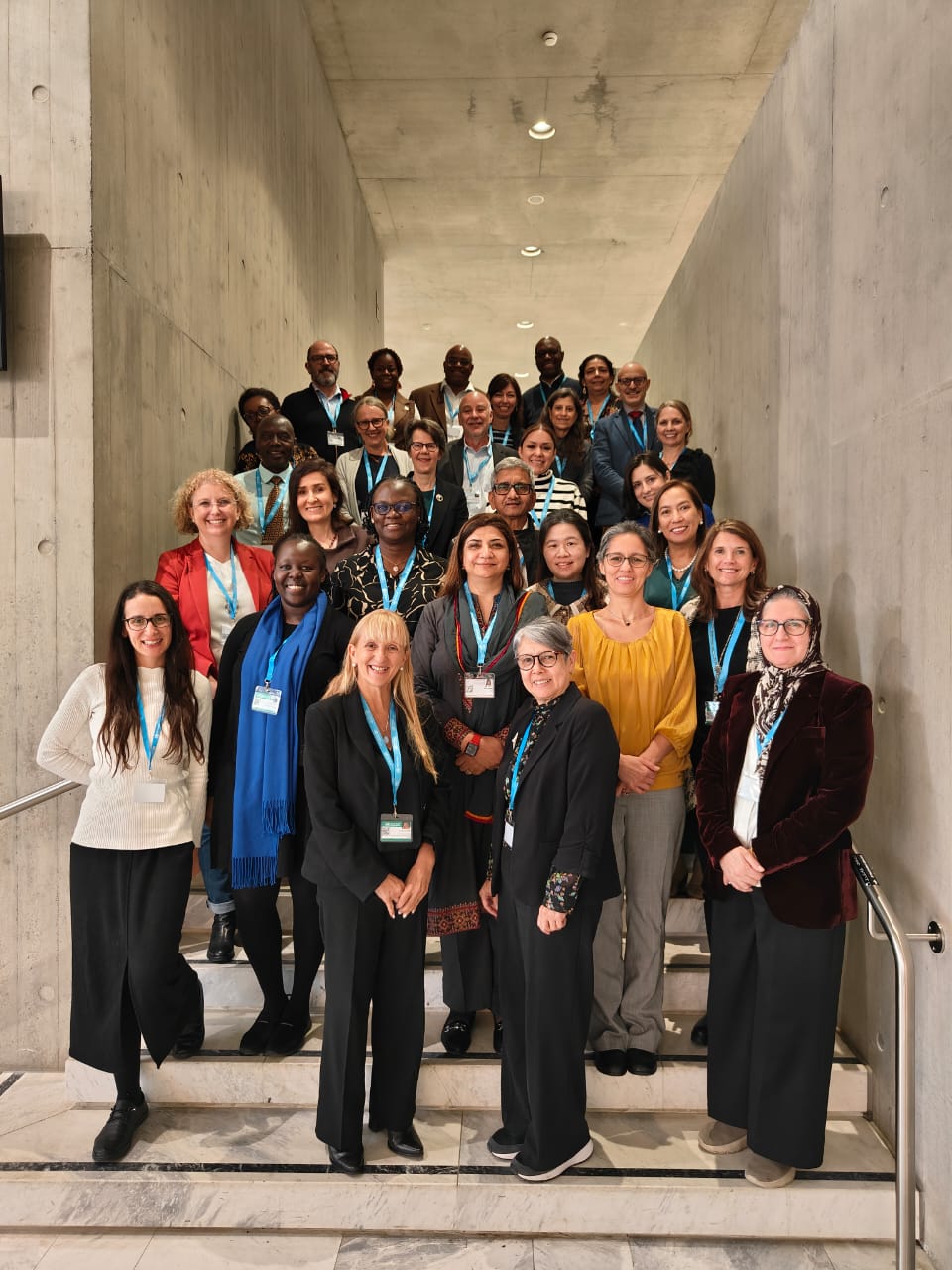
Published on 26 February 2024
EFCNI contributes to efforts by the World Health Organization (WHO) to develop a Core Outcome Set (COS) for maternal and perinatal health in anticipation of future epidemics or pandemics. Joining an international expert group, led by EFCNI Chairwoman Silke Mader, we advocate for considering and incorporating crucial patient perspectives.
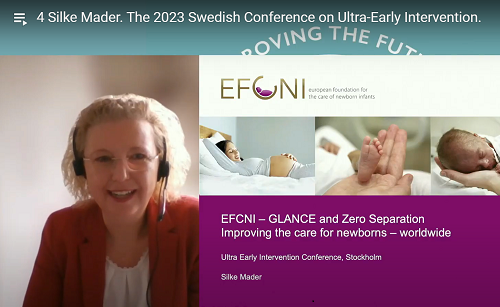
Published on 22 June 2023
The Swedish Conference on Ultra-Early Intervention, which has been held annually (except 2021) since 2009, focuses on the importance of infant- and family-centred developmental care. Over the years, many interesting and enlightening presentations have been held there by inspirational speakers. If you would like to experience some of them yourself, you can now watch the recordings of the 2015-2023 conferences for free - including this year's talk by GLANCE Chairwoman Silke Mader about why zero separation matters and what we have learnt from the pandemic.
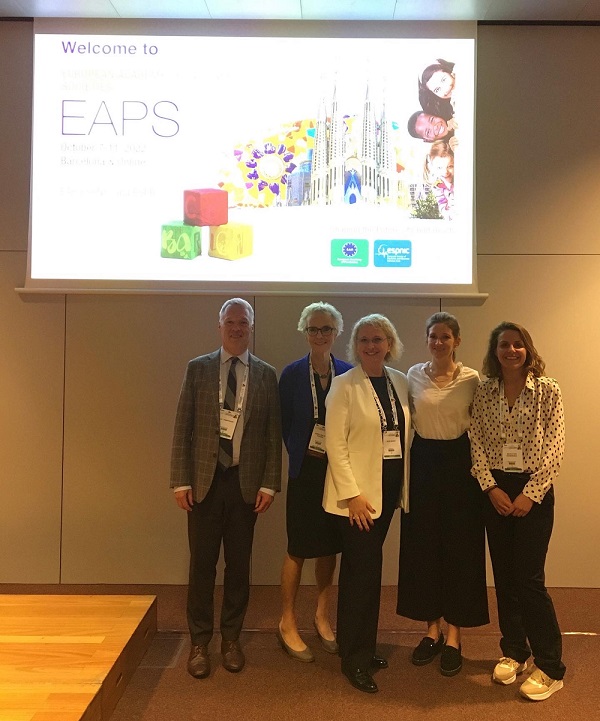
Published on 01 November 2022
In our interdisciplinary session at the EAPS Congress in Barcelona, we had the great opportunity to present the implications for infant and family-centered developmental care before and during the COVID-19 pandemic. In their talks, our speakers shed light on the parents' situation during the often rigorous separation from their newborn in the NICU and also how healthcare professionals can support parents as allies and partners now and in the future. After all, we need science-based, not fear-based policies.
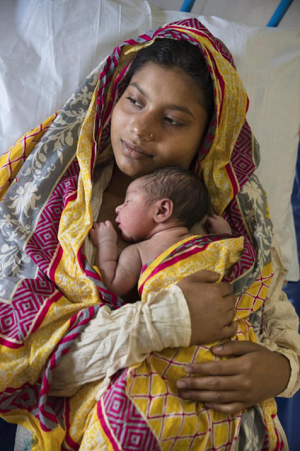
Published on 28 September 2021
This month, the WHO and UNICEF launched the thematic brief “Nurturing Care for Every Newborn: Ensuring Every Newborn Survives and Thrives” to inform about infant- and family-centred developmental care as well as ways to realise the concept in NICUs and at home.
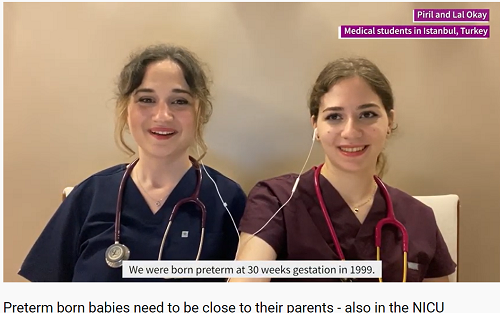
Published on 27 September 2021
Lal and Piril Okay, twins born preterm in the 1990s, share in a video statement for GLANCE, how their own preterm birth has influenced their personalities but also how they want to use their voices to support parents and hospitalised newborns to remain together during clinical care also now in times of the pandemic.
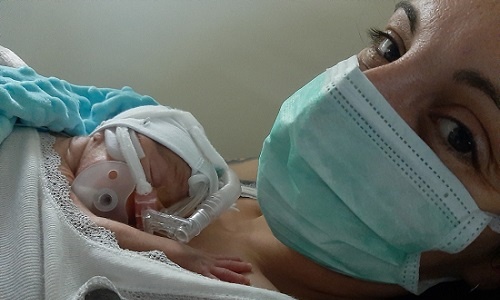
Published on 13 August 2021
The ongoing COVID-19 pandemic led to a separation between parents and vulnerable babies at the very start of their lives. With our global survey among more than 2100 parents from more than 56 countries, we aimed to listen to parents’ experiences during the first year of the COVID-19 pandemic on key elements of infant and family-centred developmental care. Detailed survey findings have now been published and can be accessed via our website.
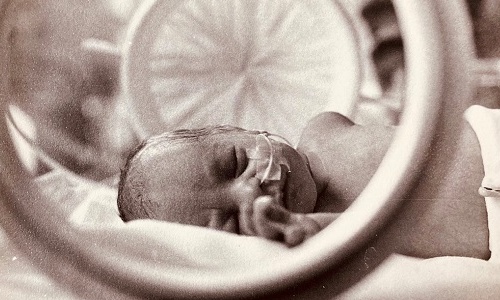
Published on 23 July 2021
Ingeborg Anna Martens was born in gestational week 30/31 in the 1970s. As was the common practice back then, she was separated from her parents who could only “visit” their daughter at the ward and watch her from a distance. Over the years, Ingeborg has reflected a lot on the long-term influence her preterm birth and this separation in the first months of her life had had on herself and on her relationship with herself and to others. Today she can say she emerged stronger from the past and looks into the future with courage and self-acceptance.
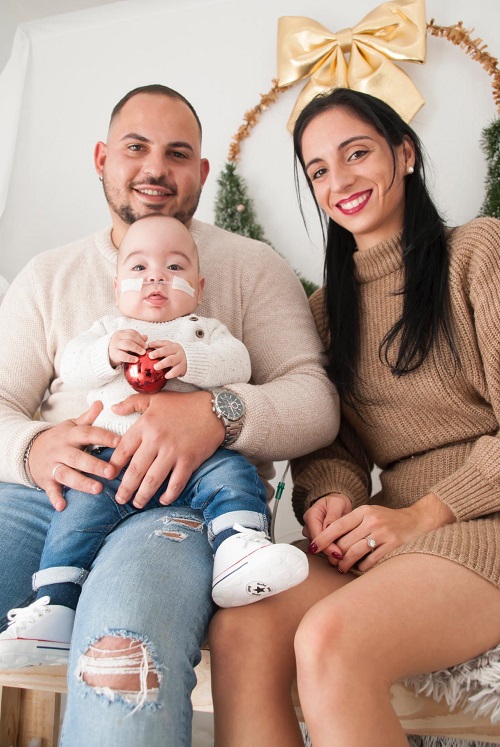
Published on 02 May 2021
Como muitos pais em todo o mundo, Patrícia Larguinho Estêvão e Pedro Filipe Silva Oliveira foram separados do seu bebé prematuro devido às medidas de segurança e higiene da COVID-19 em curso. Demorou quase 3 meses até a família estar novamente unida. Nesta entrevista, Patrícia Larguinho Estêvão e Pedro Filipe Silva Oliveira, partilham o que sentiram ao passarem por este período emocional.

Published on 28 April 2021
Like many parents worldwide, Patrícia Larguinho Estêvão and Pedro Filipe Silva Oliveira have been separated from their preterm born baby due to the ongoing COVID-19 safety and hygiene measures. It took almost 3 months until the family was united again. In this interview, Patrícia Larguinho Estêvão and Pedro Filipe Silva Oliveira, share how it felt for them to go through this emotional time.
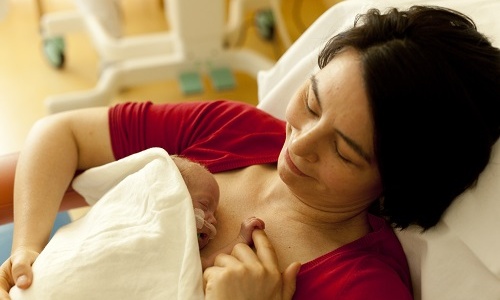
Published on 23 March 2021
Physical and emotional closeness between parents and their newborn infant is important for the development of both preterm and term-born infants. In an experimental study, carried out in 9 hospitals in Finnland, researchers investigated if and how an educational intervention programme could enhance parental presence in the ward and increase skin-to-skin care. The study aimed to fill the knowledge gap related to the facilitation of parent-infant closeness and explored how a systematic training of professionals could eventually enhance family-centred care culture.
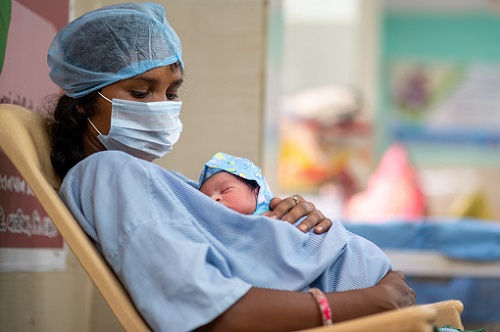
Published on 21 March 2021
Two papers have been released on the effects of the Covid-19 pandemic on small and sick newborn care: a global survey and a risk analysis. Both highlight the importance of maintaining a zero separation policy in neonatal wards and hospitals to improve outcomes of babies born too small, too sick and too soon.
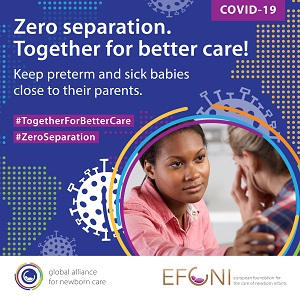
Published on 24 February 2021
Addressing mental health in the NICU environment has become even more pressing as neonatal care is very much affected by the ongoing pandemic. That is why our Zero separation campaign raises awareness for the importance of high quality emotional and psychological care for parents, other family members and clinical staff in order to sustainably enable their physical and emotional well-being.
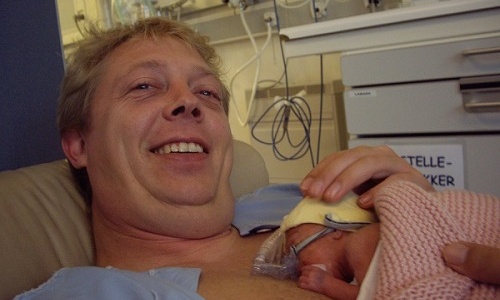
Published on 22 January 2021
In an interview with GLANCE, Vilni Verner Holst Bloch, father of a preterm born girl, recalls the especially challenging moments when he himself was separated from his daughter as she needed medical treatment right after her birth. He gives advice to fathers and partners who currently find themselves in a similar situation due to the visitation restrictions.
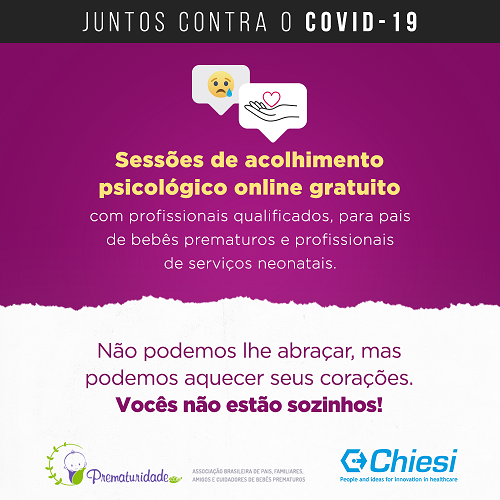
Published on 16 December 2020
The Brazilian Parents of Preemies' Association, Prematuridade, in partnership with invited psychologists, has provided free psychological assistance to dozens of people focusing, above all, on the current pandemic situation.
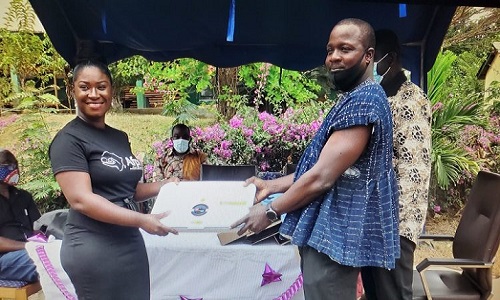
Published on 25 November 2020
Selina Bentoom, founder of the African Foundation for Premature Babies and Neonatal Care (AFPNC), launched two initiatives aimed at supporting children and their families during the COVID-19 pandemic. She distributed infant warmers to hospitals in remote areas in Ghana and collaborated with the Society of Obstetricians and Gynaecologists of Ghana (SOGOG) and the Ghana Psychological Association (GPA) on a podcast series broadcast all over Africa.
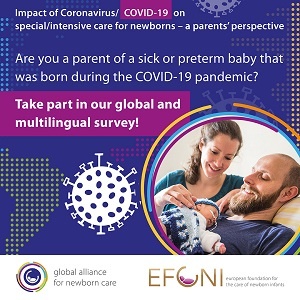
Published on 26 August 2020
GLANCE developed and released the worldwide study “Impact of Coronavirus/COVID-19 on special/intensive care for newborns – a parents’ perspective”. It aims at exploring parents’ experiences related to the challenges caused by the current pandemic regarding the care of and access to their newborn baby.
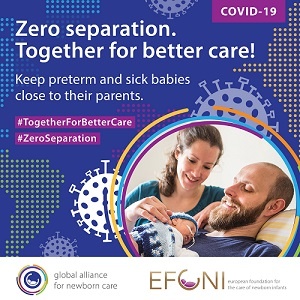
Published on 10 July 2020
GLANCE launched its first global campaign. In cooperation with its international network, GLANCE developed the long-termcampaign Zero separation. Together for better Care! to support parents of hospitalised newborns and healthcare professionals in neonatal care units with the aim to enable infant and family centred developmental care in line with COVID-19-precautions.
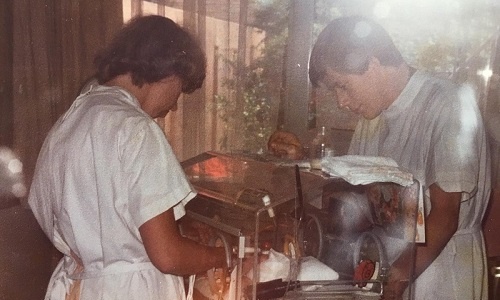
Published on 11 August 2020
What was it like giving birth preterm 40 years ago? And how does it affect an adult today, who was born preterm back then? Juliëtte Kamphuis from the Netherlands was born preterm in the 1980s. In this interview, she and her parents Joke and Theo Kamphuis told GLANCE about their very personal experience back then. Also to share this experience with parents affected by preterm birth and hospitalisation today.